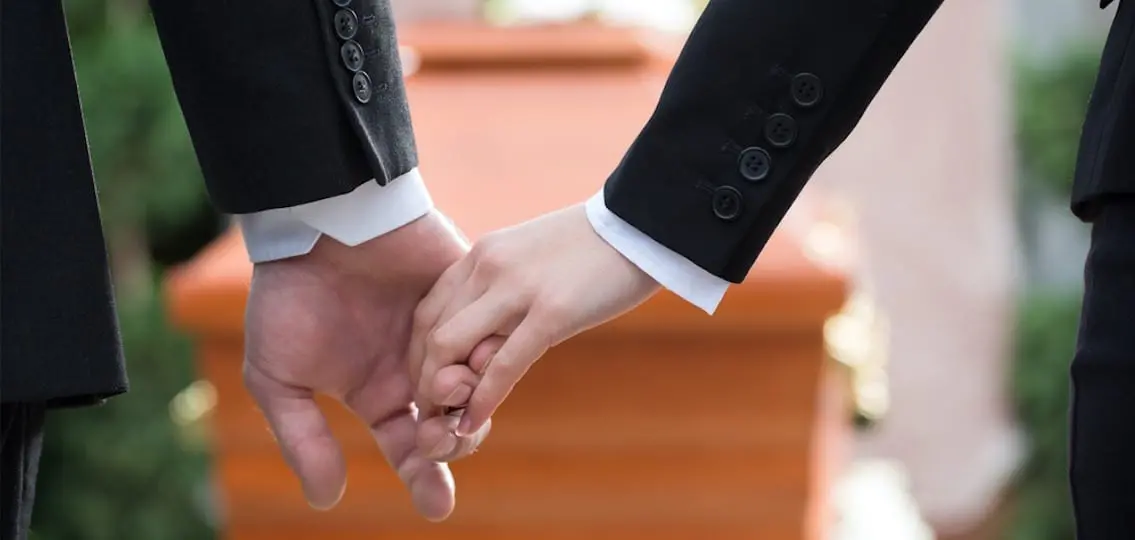My family and I were at church a few weeks ago when I heard a familiar name announced as they prayed for the recently deceased of our parish. I looked over at my son and whispered, “That’s not your friend’s father, is it?”

When Sam nodded solemnly confirming it was his buddy’s dad, my heart broke for this family of five that cancer had cruelly shrunk to four. But I also felt confused. When had he passed away, and why hadn’t my son mentioned it?
As is common by age 16, Sam, a soon-to-be high school junior, has friends and acquaintances his dad and I know by name or funny anecdote only. The older he gets, the wider his social circle grows, and while that’s a great thing, it also means we don’t know many of his pals—or their parents—the way we did when he was younger.
I hadn’t met Sam’s friend nor could I picture him, but I knew they’d been on the same baseball team. I’d also heard how this teen had sacrificed his free time to help my son boost his mediocre math grade by tutoring him during their lunch period. They’d golfed together just weeks earlier.
Hoping Sam hadn’t missed the wake or funeral and the chance to lend his support to his friend at a time when he probably needed it most, I searched for the obituary as soon as we got in the car.
“OK, the wake is tomorrow and the funeral is Tuesday,” I told Sam, relieved. “Dad or I can take you, or you can go with your classmates.”
“Wait, why would I go? I know he’s my friend, but I’ve never met his dad,” said Sam, clearly bewildered.
I looked at my husband and wondered, “How had we gotten this far into parenting without explaining the importance of paying one’s respects?”
Of course, our children have been to wakes, funerals, and shivas before, but all were for elderly relatives or friends, and we’d attended them as a family.
We explained that while he might not have known the person who passed, so much of attending these rituals have to do with showing up and expressing your condolences to the living.
Sam nodded again, but I knew from his expression just what he was thinking, “What will I say? How am I supposed to act?”
Knowing he isn’t the only teen who’s unsure about proper funeral behavior, I spoke with Gail F. Melson, Ph.D., Professor EmeritaDepartment of Human Development and Family Studies, Purdue University, who assured me my son’s reaction isn’t unique. Even adults often wrestle with knowing the right thing to do or say during times of loss, she noted.
“This might be a teen’s first exposure to death. Maybe they’ve never been to a funeral, and they’re thinking, ‘This is weirding me out. I don’t know what to do. Are people going to be crying?’ It’s very understandable not to be comfortable and to be asking, ‘Could I skip this?’ Some adults, if we’re honest, have those feelings too. But this is a teachable moment, and it’s one of those times when you have to suck it up. It isn’t about you now. It’s about this friend and how we show kindness and respect, and we don’t have to enjoy it,” Dr. Melson said.
Funeral Etiquette:
1. What to expect
It’s also important for teens to know certain expectations accompany these rites.
“You can explain to teens: Whether it’s a wake, funeral, shiva, memorial, or celebration of life, this is a ceremony that acknowledges and marks this passing,” she continued. “If you can go, it’s a good thing to do. You don’t have to get up and say anything. You may not even have a chance to talk to your friend, so it’s OK if you don’t know what to say. When you get there, you’ll be told what to do. Ushers will tell you where to sit.”
2. What to wear
Teens may require guidance concerning what to wear, she added.
“Let them know there’s a certain way to dress that expresses respect and that means no dirty jeans and flip-flops,” she said. “You may not need a fancy suit, but it should be something clean and presentable.”
Also, if a memorial is taking place in the friend’s home where they’re accustomed to playing video games, let the teen know those activities probably won’t be happening today, Dr. Melson explained.
“Cell phones should be turned off,” she added. “It’s a good idea for parents to set the rules of the road in advance because it may not occur to teens. We can’t assume that they’ll know selfies are not part of it.”
3. What to say
Teens can also turn to sympathy cards to convey the right sentiment if they feel at a loss for words. A text letting your friend know you’re there if they’d like to hang out is another way to show you care, Dr. Melson said. But let your teen know that text may go unanswered for a while depending on the friend’s mood.
Though I wish this family never experienced this devastating loss, I’m grateful that we found out in time to encourage our son to be there for his friend.
When Sam returned from the wake, he uttered words I rarely hear from him anymore.

“You were right, Mom,” he said. “Going was the right thing to do and I’m glad I was there.”




